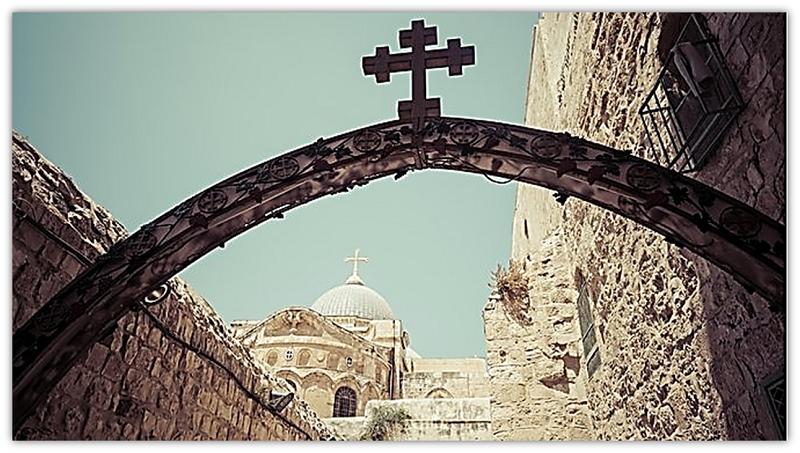On the Unity and Diversity of the Church
On the Unity and Diversity of the Church

In Acts 2:47, 5:11, 8:1, and 11:22 the name church is applied to the local gatherings of believers at Jerusalem. At the time the church at Jerusalem was virtually the only one. Very probably there were some disciples living here and there also, in Judea, Samaria and Galilee, and who later, when the persecution had broken out in Jerusalem and the disciples were dispersed, constituted a point of contact for the mission work among the Jews. But a gathering of believers, a church, existed at first in Jerusalem only. When, however, such gatherings also took place elsewhere through the preaching of the Word by the disciples, the term church was also applied to these local groups. The church at Jerusalem was not an organization which formed branches of itself elsewhere; rather, there grew up alongside of this church other gatherings of believers also called churches.
Thus, for example, there is mention made of the church at Antioch (Acts 11:26 and 13:1), and of churches at Lystra, Derbe, and the surrounding country (Acts 14:23). Paul continually applies the name of church to each of the gatherings of believers in Rome, Corinth, Ephesus, Philippi, Colosse, and elsewhere, and he also – in accordance with this practice – speaks in the plural of the churches that are in the territory of Galatia (Galatians 1:2) and Judea (Galatians 1:22). Nor is that all. The believers living in a particular locality soon began to meet regularly, sometimes daily (Acts 2:46), but regularly in time on Sunday. But they did not have their own church building – presumably the word assembly in James 2:2 is the first New Testament instance of a reference to a particular place. Hence they had to come together in some house of a brother or sister which was suitable for the purpose.
In Jerusalem they first gathered for some time still in the temple, but in addition to this they also had special meetings (Acts 1:14 and 2:42) in the homes of some of their fellows (Acts 2:46 and 5:42). So it happened that at first the house of Mary, the mother of John Mark (Acts 12:12) and later that of James (Acts 21:18) became the center of the ecclesiastical life of Jerusalem. Because the church was large, it divided into groups and came together in the same house at different times or in different houses at the same time. This practice was followed also in other places, in Thessalonica (Acts 17:11), Troas (Acts 20:8), Ephesus (Acts 20:20), Corinth (1 Corinthians 16:19), Colosse (Philemon 2), Laodicea (Colossians 4:15), and Rome (Romans 16:5, 14 and 15). It is remarkable that all of these various home-churches or house-churches were definitely given the name of church. The one was not subordinated to another but each of them was independent having the same rights as the others.
Nevertheless they were all one. Jesus had spoken of all of his disciples taken together as his church (Matthew 16:18 and 18:17), and the apostles talk in the same way of the body of believers – Paul especially doing so. The church taken in its entirety is the body of Christ, and he is their head. The church is the bride of the Lamb adorned for her husband, the house and the temple of God built by the apostles on the foundation of Christ (1 Corinthians 3:10-16), or, according to another application of the same figure, built up on the foundation of the prophets and apostles, Christ himself being the cornerstone and the believers the living stones. The church is a chosen generation, a royal priesthood, an holy nation, a peculiar people, called to show forth the praises of him who has called it out of darkness into his marvelous light (1 Peter 2 :9).

With an eye to the glorious virtues which the apostles ascribe to the church some observers have wanted to make a distinction between the empirical and the ideal church. But such a Western distinction is foreign to the New Testament. When the apostles – following the example of Christ – speak so gloriously, especially in John 14-17, of the church, they are not thinking of something which exists in the abstract or in thought only, nor of an ideal which we are to follow after and which we will probably never attain. They always have in mind, rather, the whole and the actual church, that body of which the gatherings of believers in the various localities and countries and the various times are the particular revelations. Those revelations, it is true, are all of them very defective still – and to this the apostles in all their letters testify – but they are revelations nevertheless of a reality lying beyond them, actualizations of a counsel of God carrying itself out from generation to generation.
In that counsel or decree God sees the whole church of Christ before him in its perfection. In Christ who purchased it with his blood, the church lies contained as the fruit in the seed. In the Holy Spirit, who takes everything from Christ, lies the root of its existence and the guarantee of its fulfillment. The church is therefore not an idea or an ideal, but a reality which is becoming something and will become something because it is already something. Thus it is that the church continues in constant change; it was being gathered from the beginning of the world, and it will be gathered until the end of the world. Daily there depart from it some who have fought the fight, kept the faith, earned the crown of righteousness, and who constitute the church triumphant, the church of the firstborn and the spirits of just men made perfect (Hebrews 12:23). And daily new members are added to the church on earth, to the militant church here below; they are born in the church itself or are brought in by the work of missions.
These two parts of the church belong together. They are the vanguard and rearguard of the great army of Christ. Those who have preceded now form round about us a great cloud of witnesses; during their lives they made their confession of faith and thus admonished us to faithfulness and patience. Without us they could not become perfect, and without them we could not be perfect (Hebrews 11:40). Only all the saints together can fully grasp the greatness of the love of Christ and be filled with all the fullness of God (Ephesians 3:18-19). History will continue, therefore, until we all have come to the oneness of the faith and the knowledge of the Son of God, to a perfect man, to the measure of the stature of the fullness of Christ (Ephesians 4:13).

Add new comment